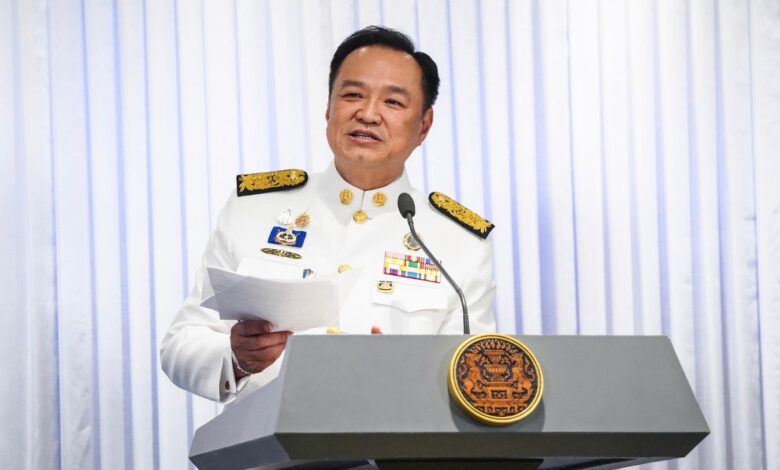Thai Parliament Elects Cannabis Champion As New Prime Minister

📝 usncan Note: Thai Parliament Elects Cannabis Champion As New Prime Minister
Disclaimer: This content has been prepared based on currently trending topics to increase your awareness.
Thailand’s Prime Minister Anutin Charnvirakul speaks to the media after the royal endorsement ceremony appointing him as the country’s new prime minister at Bhumjaithai Party headquarters in Bangkok, Thailand, on September 7, 2025. (Photo by Anusak Laowilas/NurPhoto via Getty Images)
NurPhoto via Getty Images
The Thai Parliament has elected Anutin Charnvirakul as Prime Minister, one of the most prominent advocates for cannabis legalization in the Southeast Asian country.
Anutin, 58, leader of the political party Bhumjai Thai, was elected by the Parliament last week, after an endorsement from the Thai king.
He becomes the third prime minister to take office in Thailand in two years, following the removal of Paetongtarn Shinawatra and her predecessor, Srettha Thavisin.
Anutin is known for having helped decriminalize cannabis in Thailand in 2022, and his appointment as Prime Minister raises questions over how he will act towards its legal status, as previous governments have tried to reverse decriminalization efforts.
Thailand’s Cannabis Journey
In 2022, when Anutin was Health Minister, he was one of the first to announce that the country’s narcotics agency approved the descheduling of cannabis from the ministry’s list of controlled drugs, making Thailand the first Asian country to do so. However, the decriminalization soon became a source of controversy.
Even without formal regulations, thousands of cannabis shops popped up across the country. The Thai cannabis dispensary directory Weed.th today counts nearly 11,000 of them. Amid enthusiasm for the decriminalization, Anutin himself announced in that same year his intention to distribute one million low-THC medical cannabis plants to households across the country.
However, with the general election held in 2023 and the appointment of then Prime Minister Srettha, plans to roll back the decriminalization of cannabis started to emerge, creating uncertainty for the industry. In an interview with Bloomberg, Srettha clarified that cannabis could have been used for medical reasons only.
But in 2024, Anutin, who in the meantime assumed the role of Deputy Prime Minister and Minister of Interior within the new government, announced that the Thai government was planning to regulate cannabis without re-criminalizing it for recreational use, as initially planned.
In a new bill, unveiled the same year, cannabis wasn’t classified as narcotics, but it was limited to medical use, research, and industrial applications.
A year later, however, the crackdown on recreational cannabis intensified, with a ministry’s directive that regulated cannabis for medical purposes only, banning unlicensed cannabis sales, and stipulating that individuals who wanted to use cannabis should have a doctor’s prescription and a medical certificate to confirm their health condition. That move would have disrupted an industry valued at over $1 billion, according to a study by the University of the Thai Chamber of Commerce.
Anutin As Pro-Cannabis Prime Minister
But now, with Anutin as Prime Minister, cannabis operators may hope that potential legal changes will allow them to continue to operate in the country. But there are no guarantees.
His prominent role in decriminalizing cannabis has also created mixed feelings over the years. On the one hand, his advocacy for cannabis legalization made him perceived as progressive; but on the other hand, his efforts to decriminalize cannabis attracted criticism, with opponents citing a lack of sufficient regulatory oversight, which could have led to misuse and public harm.
In political terms, Anutin is called to lead the government in a fragile political moment, and it remains to be seen how he will juggle amid political hurdles and if he will have enough time and ability to address the issue of cannabis in the country, as it may not be one of his top priorities.
As reported by Reuters, Anutin’s election was the result of a political agreement with the progressive opposition People’s Party, the largest bloc in parliament, which was convinced by his promise to hold a referendum on amending the constitution and call a general election within four months.
Anutin will, in fact, lead a minority government, reportedly without the support of the People’s Party. This would make his mandate challenging due to the country’s political instability.




